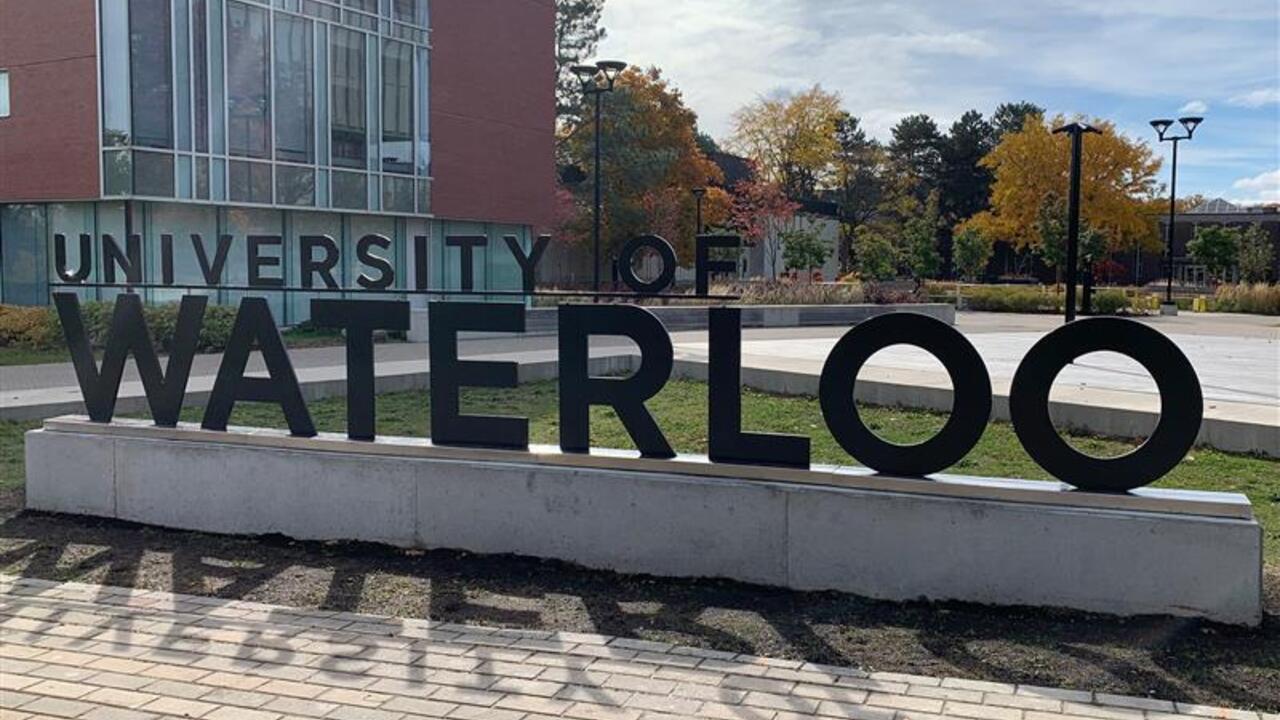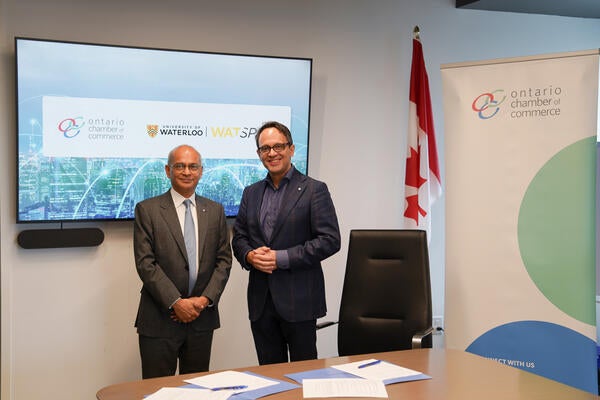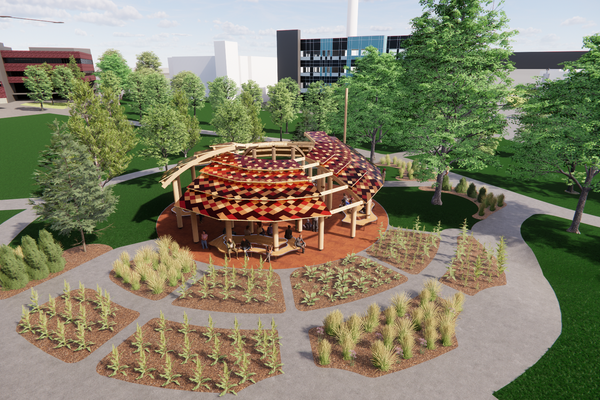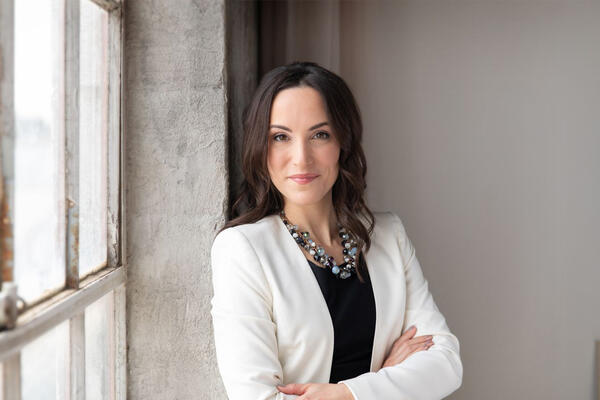
Campaign Waterloo makes a $613.2 million impact on Canada, the world
Close to 250 volunteers and donors celebrated the closing of the second most successful university fundraising campaign in Canadian history.

Close to 250 volunteers and donors celebrated the closing of the second most successful university fundraising campaign in Canadian history.
By Media RelationsWATERLOO, Ont. (Wednesday, Oct. 27, 2010) - Close to 250 volunteers and donors celebrated the closing of the second most successful university fundraising campaign in Canadian history. Campaign Waterloo ended with $613.2 million in donations, more than twice its original target, and is allowing the University of Waterloo to help transform Canada and the world in important areas that include healthy aging, climate change and energy, quantum-nano research, digital media, quantitative finance, architecture and international affairs.
Campaign Waterloo: Building a Talent Trust, which publicly launched in 2004 with a goal of $260 million, ended with the departure of former University of Waterloo president David Johnston, as he took up his new post as Canada's 28th Governor General. As the goal was quickly reached, Waterloo revised its target to $350 million. Campaign Waterloo attracted five of 13 of the largest gifts made to higher education in Canada.
The campaign owes its success to the more than 60,000 donors and 650 volunteers who collaborated to create opportunities for Waterloo to build a better future, for Canada and the world. Sixty-six donors made gifts of $1 million or more. During the campaign, the university campus was transformed by the creation of 10 new buildings, with four more under construction, and additions to 11 others. In total, Waterloo's square footage is increasing to 2.5 million square feet.
"Waterloo has always been responsive to the needs of society, leading through innovation and unconventional approaches to solve pressing problems," said Bob Harding, chair, Campaign Waterloo. "The success of Campaign Waterloo has been felt across this community and country and has fuelled the creation of new facilities, satellite campuses, teaching resources, scholarships and research capacity, and has also attracted wonderful talent, brainpower and investment to the region and province."
Campaign Waterloo is building a better future by:
- Developing innovative research and training programs to enhance the quality of life and care of Canada's aging population. The Schlegel-UW Research Institute for Aging (RIA) focuses on an issue of vital importance to Canadians - healthy aging. Through collaborative research in community-based and long-term care environments, RIA translates research results into practical and innovative methods to maintain our health as we age, determine best practices for care providers and health care systems, and create new curriculum for colleges and universities.
- Making energy research yield timely solutions to the global challenge of affordable but sustainable energy use. The Waterloo Institute for Sustainable Energy (WISE) is a recognized leader in promoting innovation through research in the development and deployment of advanced energy systems for solar, wind, bio energy, fuel cells, buildings and advanced storage (batteries, hydrogen) for sustainable mobility. WISE leads 80 faculty members to enhance the capacity for sustainable energy research, development and deployment through education, partnerships and commercialization.
- Building and controlling the world at the atomic level through quantum computing and nanotechnology. The Mike and Ophelia Lazaridis Quantum-Nano Centre (QNC), currently under construction, will house two leading research institutes: Institute for Quantum Computing (IQC) and Waterloo Institute of Nanotechnology (WIN). IQC explores and tames the quantum universe, where the usual laws of physics do not apply, to transform computing and communications, and WIN deals with the fabrication and behaviour of materials, devices and systems in the size range of atoms or molecules, generally 100 nanometres or smaller, to create new structures, systems and devices with novel properties. QNC will be a state-of-the-art facility designed to foster cross- disciplinary collaboration between scientists in these cutting-edge fields to further establish Waterloo and Canada as global leaders in science and technology.
- Developing key financial solutions to many complex problems facing industry, government and society through the Waterloo Research Institute in Insurance, Securities and Quantitative Finance (WatRISQ). The leading financial research centre develops, among other things, mathematical and computation models to help insurance companies, banks and financial institutions manage their investment risk by protecting their assets while still allowing for growth. Quantitative analysts in government and private companies use WatRISQ's findings to build a stronger financial services sector for Canada, which has become a model for the rest of the world.
- Becoming the go-to place for digital media innovation. The Waterloo Stratford Campus has had a significant impact on the country's digital media industry. Earlier this year, Canada's Minster of Industry, Tony Clement, chose the second annual Canada 3.0 forum, co-organized by the Stratford campus, where the country's digital media leaders discussed Canada's leadership opportunities in this important global industry, to launch the country's digital strategy consultation. Stratford's academic and research programs will explore the future of digital media in Canada through a global lens. By partnering with industry, other academic institutions and fostering a Canadian community of innovators, the Waterloo Stratford Campus will quickly become Canada's digital media hub of innovation.
- Building communities and producing design excellence in Canada and abroad. The school of architecture relocated to an historic building in Cambridge, Ont. in 2004. The building won nine design awards and sparked a revival in the core area, one of the most beautiful urban landscapes in Ontario, including Grand House, an ultra-green residence designed and built by students for students. The curriculum has been rated the greenest in Canada. Waterloo is the only Canadian school of architecture to have a permanent international facility, which has operated for 31 years in Rome, Italy. Architecture faculty members have produced Canada's pavilion in the last two editions of the world's most important architecture exhibition, the Venice Biennale.
- Becoming a beacon for top students and researchers interested in devising new and ambitious approaches to global governance at the Balsillie School of International Affairs (BSIA). The school is the first of its kind in the world where collaboration between two universities (Waterloo and Wilfrid Laurier University) and an internationally respected think tank, the Centre for International Governance Innovation (CIGI), will allow students and researchers to explore the impact global governance and international policy has on global security, conflict, economics, environment, diplomacy and justice and human rights.
"Campaign Waterloo's success is a credit to our alumni, students, faculty and staff, plus our many corporate partners who supported the vision to build a talent trust for Canada," said Harding, who also serves as chair, board of governors. "We are immensely grateful for their support."
While Campaign Waterloo has ended, the need has not. Faculties, university colleges and units will continue to fundraise to meet their sixth-decade goals to make a better future for Canada and the world.
About the University of Waterloo
The University of Waterloo, located at the heart of Canada's Technology Triangle, is one of Canada's leading comprehensive universities. Waterloo is home to 30,000 full- and part-time undergraduate and graduate students who are dedicated to making the future better and brighter. Waterloo, known for the largest post-secondary co-operative education program in the world, supports enterprising partnerships in learning, research and discovery. For more information about Waterloo, visit www.uwaterloo.ca.
Contacts:
Linda Kieswetter, associate vice-president, principal gifts and
campaigns, 519-888-4567 ext. 32961 or lindak@uwaterloo.ca
Meg Beckel, vice-president, external relations, 519-888-4567 ext.
36888 or mbeckel@uwaterloo.ca
Jude Doble, communications officer, principal gifts, 519-888-4567 ext.
36173 or jude.doble at uwaterloo.ca
Michael Strickland, Waterloo media relations, 519-888-4777 or mstrickl@uwaterloo.ca
Waterloo news release no. 83

Read more
Waterloo’s WatSPEED to provide businesses with access to AI upskilling programs in new province-wide initiative

The University of Waterloo recently broke ground for the new space, scheduled for completion by this fall.
Read more
Construction begins on Indigenous outdoor gathering space at University of Waterloo

Read more
Pharmacy alum Stacey D'Angelo boosts patient health by deprescribing meds, focusing on holistic health, mental well-being and personalized medicine
The University of Waterloo acknowledges that much of our work takes place on the traditional territory of the Neutral, Anishinaabeg and Haudenosaunee peoples. Our main campus is situated on the Haldimand Tract, the land granted to the Six Nations that includes six miles on each side of the Grand River. Our active work toward reconciliation takes place across our campuses through research, learning, teaching, and community building, and is co-ordinated within the Office of Indigenous Relations.